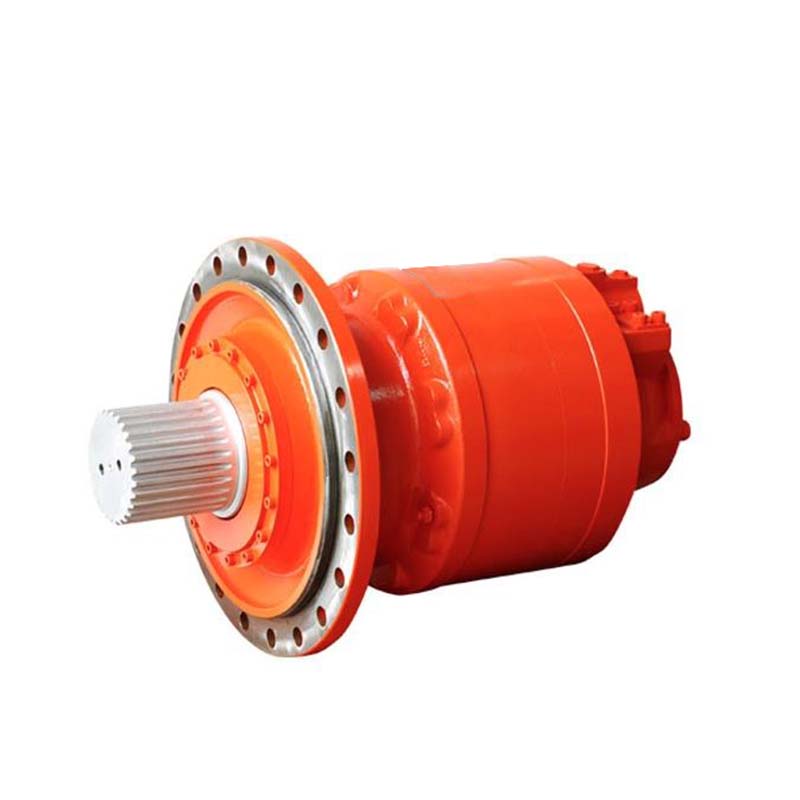The Critical Role of Motors in Car Wash Systems
Effective car washing requires not only soap and water but also the proper equipment. At the heart of a car wash system is the motor, which drives the brushes, nozzles, and pumps in the system. Because these motors must operate for long periods under harsh conditions, choosing the right motor is a unique engineering challenge. In this article, we'll look at the pros and cons of electric motors and hydraulic motors in carwash systems, and how to choose the right drive solution for a given application.
Electric motors
Electric motors are favored for their longevity and ease of maintenance. However, in water-rich environments such as car wash systems, electric motors can face several challenges.
Long life: Electric motors are often ruggedly designed to run for long periods, making them suitable for carwash systems that need to operate consistently and efficiently.
Low Maintenance: Compared to hydraulics, electric motors are relatively simple to maintain and do not require frequent oil changes or hydraulic line inspections.
DisAdvantages:
Conflict between water and electricity: in water-rich car wash environments, electric motors are susceptible to water intrusion. Leaks, rust, and corrosion are common problems that can lead to premature motor failure.
HIGH COST: The initial cost of an electric motor is high, typically four to five times that of a hydraulic motor of the same performance. In addition, electric motors are more expensive to repair and replace parts.
Hydraulic Motors: Advantages and Disadvantages
Hydraulic motors are also a common choice in carwash systems, especially when it comes to cost control and environmental adaptability.
Cost-effective: Hydraulic motors have a lower initial cost, making them suitable for carwash systems with limited budgets. In addition, hydraulic motors have relatively low maintenance and replacement parts costs.
Environmental Resistance: Hydraulic motors are ruggedly designed to withstand corrosion from water and metal. Unpainted and sealed hydraulic motors develop a rust-resistant coating that allows them to adapt to wet environments without compromising performance.
Risk of Oil Leakage: Hydraulic lines can rupture and cause oil leakage, resulting in environmental pollution and equipment damage. However, this risk can be greatly reduced through regular inspection and maintenance.
Regular maintenance required: hydraulic systems require regular inspection and replacement of worn hydraulic hoses and standard hydraulic tank maintenance.
Hydraulic motors in car wash systems
Hydraulic motors in car wash systems are known for their cost-effectiveness and environmental resistance. To ensure the long-term stable operation of hydraulic motors, here are some maintenance recommendations:
Regular inspection: Regularly check the hydraulic hoses and replace them in time if they are worn to prevent oil leakage.
Use corrosion-resistant materials: Use Stainless Steel piping to enhance the corrosion resistance of the system.
Standard maintenance: Regularly maintain the hydraulic oil tank to ensure normal fluid level and avoid air entering the system.
Conclusion
In a car wash system, electric motors and hydraulic motors have their advantages and disadvantages. Electric motors are suitable for applications that require long life and low maintenance but may face corrosion and high costs in water-rich environments. Hydraulic motors, on the other hand, are a good choice for their cost-effectiveness and environmental resistance, although they require regular maintenance and inspection.
Depending on the specific application scenario and budget, it is crucial to choose the right drive solution. In the future, as technology advances, both electric motors and hydraulic motors will continue to be optimized to provide more efficient and reliable power support for car wash systems.
Saivs brand
- t6dc ultra-low pulse double hydraulic vane pump
- A2FE Axial piston fixed motor
- hydraulic winch with free lowering function
- Sai GM Crane Winch Motor GM1 Hydraulic Swing Cylinder Radial Piston Motor Oil Pump
- Gear pumps series NSH10M
- GM3 Series Hydraulic Radial Piston Motor
- A6VM160~500/A6VE160/A7VO28~500 Rexroth Hydraulic Pump Parts
- rexroth 4wrke16 4wrke25 series electro-hydraulic proportional directional valve
- A4V40~250/A4VFO28/A4VSO40~500 Rexroth Hydraulic Pump Parts
- Ms/Mse02 Poclain Hydraulic Motors
